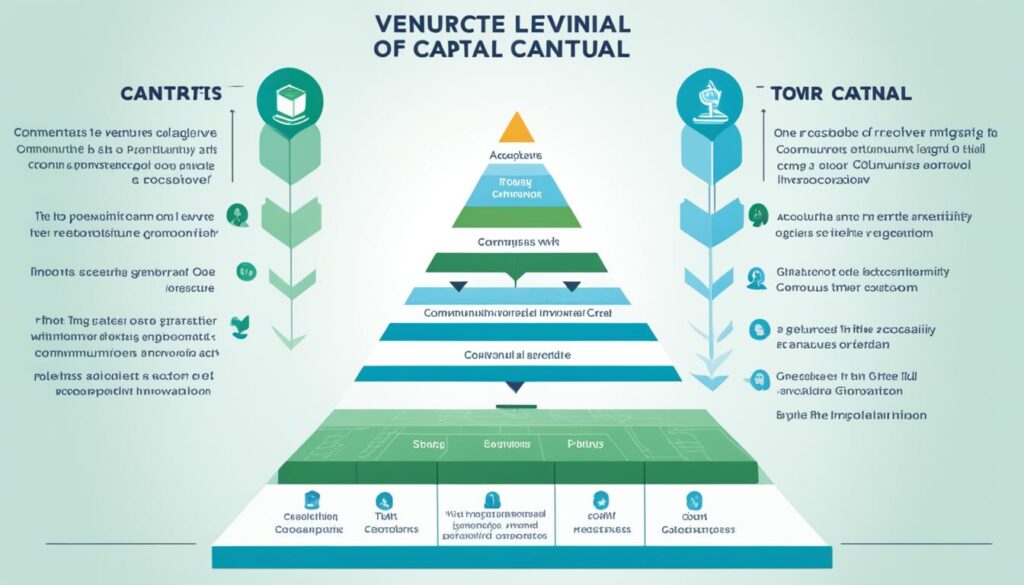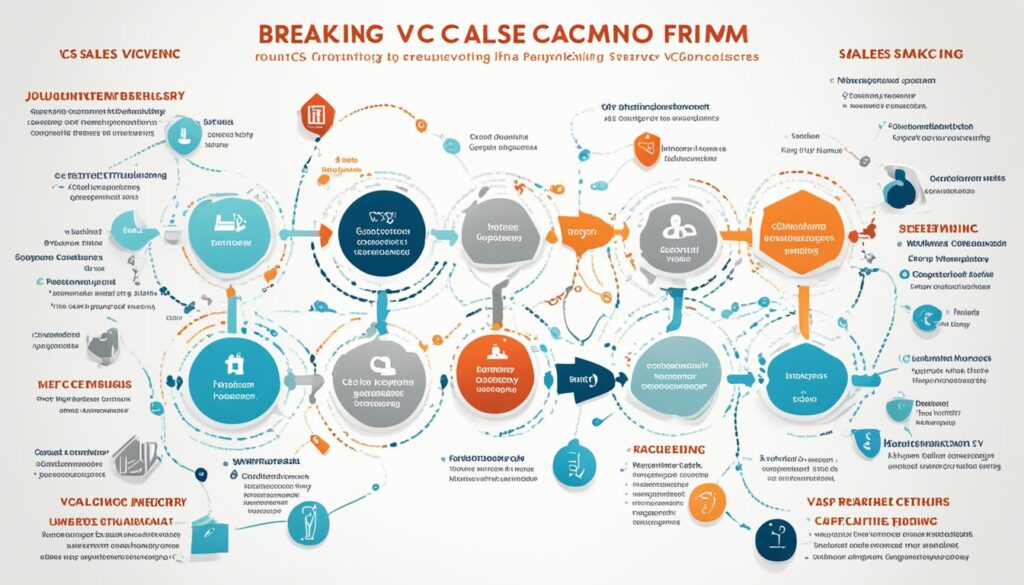Venture capital (VC) is often seen as a glamorous and desirable field, but the path to getting a job in this industry can seem elusive. Sajith Pai, a VC at Blume Ventures in India, frequently receives inquiries from individuals curious about breaking into venture capital, getting a job in venture capital, and navigating the VC career path. The fact that Pai himself transitioned to VC from a non-startup, non-investing background in his early 40s suggests that this is a common question, even for those already established in the industry.
Key Takeaways
- The venture capital market is divided into two tiers: the first-time founder market and the repeat founder market, each with different investment criteria and deal dynamics.
- Venture capitalists view their role as purveyors of “brand capital,” which includes their investment amount, time, and platform services.
- VC firms seek professionals who are highly articulate, passionate about startups, and have relevant experience, rather than just number crunchers.
- Networking, building connections, and leveraging relevant experience are key strategies for breaking into venture capital.
- There are three main entry points into VC: the pre-MBA route, the post-MBA route, and the senior-level/operating partner route.
Understanding the Two-Tier Venture Capital Market
The venture capital market is often best understood as a two-tier system, comprising a market for first-time or fresh founders, and a separate market for repeat or fluent founders. This distinction is crucial, as the investment criteria, deal sizes, and valuations can vary significantly between these two tiers.
The First-Time Founder Market (Buy-Side)
The first-tier of the venture capital market is focused on first-time founders, also known as the “buy-side.” Venture capitalists (VCs) in this segment tend to prioritize factors like the founder’s passion, vision, and ability to execute, rather than relying solely on past experience. They often take a more hands-on approach, providing guidance, resources, and support to help these founders navigate the challenges of building a successful startup.
The Repeat Founder Market (Sell-Side)
In contrast, the second-tier of the venture capital market caters to repeat or experienced founders, often referred to as the “sell-side.” Here, VCs are more focused on the founder’s track record, their ability to rapidly scale a business, and their understanding of the industry dynamics. The investment criteria, deal sizes, and valuations tend to be higher in this segment, as VCs are more inclined to back founders who have already demonstrated their entrepreneurial prowess.
Understanding this two-tier structure of the venture capital market is crucial for aspiring founders and those looking to break into the VC industry. It highlights the nuanced approach VCs take when evaluating potential investments, with first-time founders and repeat founders facing different VC investment criteria and founder power dynamics.

Viewing Venture Capital as Enterprise Sales
The first source suggests that a useful framework for understanding venture capital, especially the upper tier of the venture world involving repeat or experienced founders, is to view it as a market where the venture capitalist (VC) is a purveyor of their “brand of capital.” This brand of capital includes the VC’s investment amount, the investment team’s time, and the platform services the VC can provide, such as recruiting and fundraising support.
VCs as Purveyors of Brand Capital
In this context, VCs are essentially selling their “brand of capital” to founders, who are the ideal customer personas. The founders, particularly those with prior experience, are evaluating the VC’s brand capital – the VC’s investment size, team expertise, and platform services – and deciding which VC firm can provide the most value to their venture. This dynamic is akin to an enterprise sales process, where the VC is the seller and the founder is the buyer.
Founders as the Ideal Customer Persona
From the VC’s perspective, founders, especially those with a proven track record, are the ideal customer personas. These repeat founders have a deep understanding of the venture capital ecosystem and are well-versed in assessing the VC’s economic model and brand capital. They scrutinize the VC’s investment thesis, team composition, and platform services to determine which firm can best support their venture’s growth and success.

Qualities Venture Capitalists Seek in Recruits
When it comes to hiring for VC roles, venture capitalists often seek out individuals who possess a unique blend of qualities that go beyond just financial acumen. According to the first and second sources, the qualities VC firms look for in potential recruits include being presentable, highly articulate, and demonstrating a genuine passion for startups – rather than merely being number-crunching professionals with limited interest in entrepreneurship.
In the competitive world of VC recruitment criteria, VCs prioritize candidates who can effectively communicate their ideas, build strong relationships, and truly understand the dynamics of the startup ecosystem. These skills for VC roles are seen as essential for navigating the intricate VC landscape and identifying the most promising investment opportunities.
| Qualities Sought by VCs | Importance for VC Success |
|---|---|
| Exceptional communication skills | Ability to effectively pitch ideas, present to founders, and build rapport |
| Passion for entrepreneurship | Deep understanding of the startup world and genuine interest in supporting founders |
| Analytical prowess | Capacity to evaluate business models, financial projections, and market potential |
| Relationship-building expertise | Skill in networking, sourcing deals, and fostering strong partnerships |
| Commercial acumen | Ability to identify and capitalize on emerging market trends and opportunities |
By seeking out these qualities VC firms look for, venture capitalists aim to assemble a team that can effectively navigate the VC recruitment criteria and leverage their unique skills for VC roles to identify and support the most promising startups in the market.

How do I break into a VC firm?
Breaking into the lucrative and competitive world of venture capital (VC) can seem daunting, but with the right strategies, it is an achievable goal. Two key approaches to consider are networking and building connections, as well as leveraging relevant experience.
Networking and Building Connections
Establishing a strong network within the VC community is crucial for securing a role. Attend industry events, conferences, and meetups to connect with VCs, founders, and other professionals in the ecosystem. Leverage your existing connections, such as former colleagues, alumni, or mentors, to get introductions to VC firms. Proactively reach out to VCs on LinkedIn or through email to express your interest and schedule informational interviews.
Leveraging Relevant Experience
Venture capitalists often seek candidates with a diverse set of skills and experiences that are directly applicable to the VC role. Relevant experience can come from a variety of backgrounds, such as entrepreneurship, investment banking, consulting, or even operating roles in startups. Highlight your achievements, problem-solving abilities, and industry knowledge to demonstrate your potential value as a VC.
Additionally, consider pursuing relevant certifications or attending specialized programs, such as the Venture Capital Institute, to further bolster your credentials and demonstrate your commitment to the VC industry.

By leveraging your networking skills and relevant experience, you can increase your chances of breaking into the competitive VC recruiting process and securing your dream job in venture capital.
Entry Points into Venture Capital
Venture capital (VC) is a highly sought-after career path, with numerous aspiring individuals vying for a limited number of junior-level positions. According to industry insights, there are three primary entry points into the world of venture capital: the pre-MBA route, the post-MBA route, and the senior-level/operating partner route.
Pre-MBA Route
For those interested in breaking into VC directly after undergrad, the path can be challenging. Most successful candidates in the pre-MBA route have already gained some full-time work experience and established a professional network. This prior experience, combined with a demonstrated passion for startups and entrepreneurship, can help candidates stand out in the highly competitive VC recruitment process.
Post-MBA Route
The post-MBA route is a more common entry point into venture capital. Aspiring VCs often pursue an MBA to bolster their business acumen, network, and access to industry connections. Many VC firms actively recruit from top-tier MBA programs, seeking candidates with a solid understanding of finance, strategy, and the startup ecosystem.
Senior Level / Operating Partner Route
The senior-level or operating partner route is an increasingly popular path for experienced professionals looking to transition into venture capital. These individuals often have a background as successful entrepreneurs, executives, or operating partners at prominent technology companies. Their deep industry expertise, proven track record, and extensive professional networks make them highly valuable additions to VC teams.
Regardless of the entry point, aspiring VCs must possess a unique combination of analytical skills, business acumen, and a genuine passion for supporting high-growth startups. As the venture capital industry continues to evolve, these entry pathways provide diverse opportunities for professionals to embark on rewarding VC career paths.

The Venture Capital Recruiting Process
Breaking into the VC recruiting process can be a daunting task, but understanding the key elements can increase your chances of success. Venture capital firms often rely on a combination of headhunters, networking, and a rigorous interview process to identify top talent for their coveted roles.
Role of Headhunters
VC headhunters play a vital role in sourcing and screening candidates for VC positions. These specialized recruiters have deep industry connections and a keen understanding of the skills and experience required for success in the venture capital world. Leveraging their expertise can be a valuable strategy for those seeking to break into the VC industry.
Networking and Referrals
Networking is another crucial element of the VC recruiting process. Building and maintaining relationships within the VC ecosystem, whether through industry events, alumni networks, or personal connections, can significantly increase your chances of being considered for open positions. Referrals from existing VC professionals or founders in your network can also carry significant weight in the hiring process.
Interview Process
The VC interview process is known for its rigor and depth. Candidates can expect to face a range of challenges, from in-depth discussions on investment theses and deal analysis to case studies and pitch presentations. The goal for VC firms is to assess not only the technical skills of the candidates but also their ability to think critically, communicate effectively, and demonstrate a genuine passion for the startup ecosystem.

Life Science Venture Capital: A Different Ballgame
While the principles of venture capital investment apply across sectors, the world of life science venture capital (biotech, pharmaceuticals, medical devices, etc.) differs significantly from its tech-focused counterpart. At early-stage life science VC funds, academic prowess and advanced scientific knowledge count for a lot, as these funds often back cutting-edge research and development projects with long gestation periods.
Whereas traditional tech VCs may focus more on business acumen, market traction, and scalable business models, life science VC professionals must possess a deep understanding of the regulatory landscape, clinical trial processes, and the complex science behind the innovations they evaluate. This specialized domain knowledge is critical in assessing the technical feasibility and commercial viability of biotech and medical devices startups.
The investment thesis in life science venture capital also differs significantly from tech VC. Factors like the total addressable market size, regulatory hurdles, and potential exit multiples play a more prominent role in the decision-making process. For instance, the addressable market for a startup must be £600m+ to justify a venture capital investment, and a 3-4x revenue multiple (£60-£80m revenue in the exit year) is typically considered for potential exit outcomes, as explained in this article on the Equity Kicker.
As a result, life science VC firms often seek out professionals with strong academic backgrounds in fields like medicine, biology, or engineering, in addition to venture capital or entrepreneurial experience. This hybrid skillset allows them to bridge the gap between cutting-edge science and commercial viability, making them invaluable assets in the highly specialized world of biotech and medical devices investing.
The Pros and Cons of Being a Venture Capitalist
Working as a venture capitalist (VC) can be an exciting and rewarding career, but it’s not without its challenges. Let’s explore the key pros and cons of being a VC.
The Pros
One of the primary advantages of being a VC is the opportunity to work with innovative startups and talented entrepreneurs. VCs get a front-row seat to the latest industry trends and technologies, providing them with a unique perspective on emerging markets and investment opportunities. Additionally, successful VC investments can lead to substantial financial rewards, as the profits from investments in venture capital may take 15+ years to materialize due to the distribution structure of profits.
Another significant perk is the prestige and network that comes with being a VC. Venture capitalists are often seen as industry experts and thought leaders, which can open doors to new opportunities and provide valuable connections within the startup ecosystem. The ability to work collaboratively with a diverse range of founders and co-investors further enhances the professional growth and fulfillment of a VC’s career.
The Cons
While the potential rewards of being a VC are high, the job also comes with its fair share of challenges. The venture capital industry is fiercely competitive, with limited partner positions available and only a few individuals being promoted to the coveted partner role each year. This highly competitive environment can create a sense of job insecurity and pressure to consistently deliver successful investments.
Additionally, the long-term nature of venture capital investments means that VCs may have to wait several years before seeing the full financial benefits of their work. This can be frustrating, especially considering the compensation distribution in VC funds can heavily favor the “boss” at the fund, potentially resulting in lower-than-expected returns for other partners. Furthermore, the intense focus on identifying and nurturing the “unicorn” startups with the highest potential valuations can be mentally and emotionally draining, as only the very best startups with high potential valuations matter in venture.
